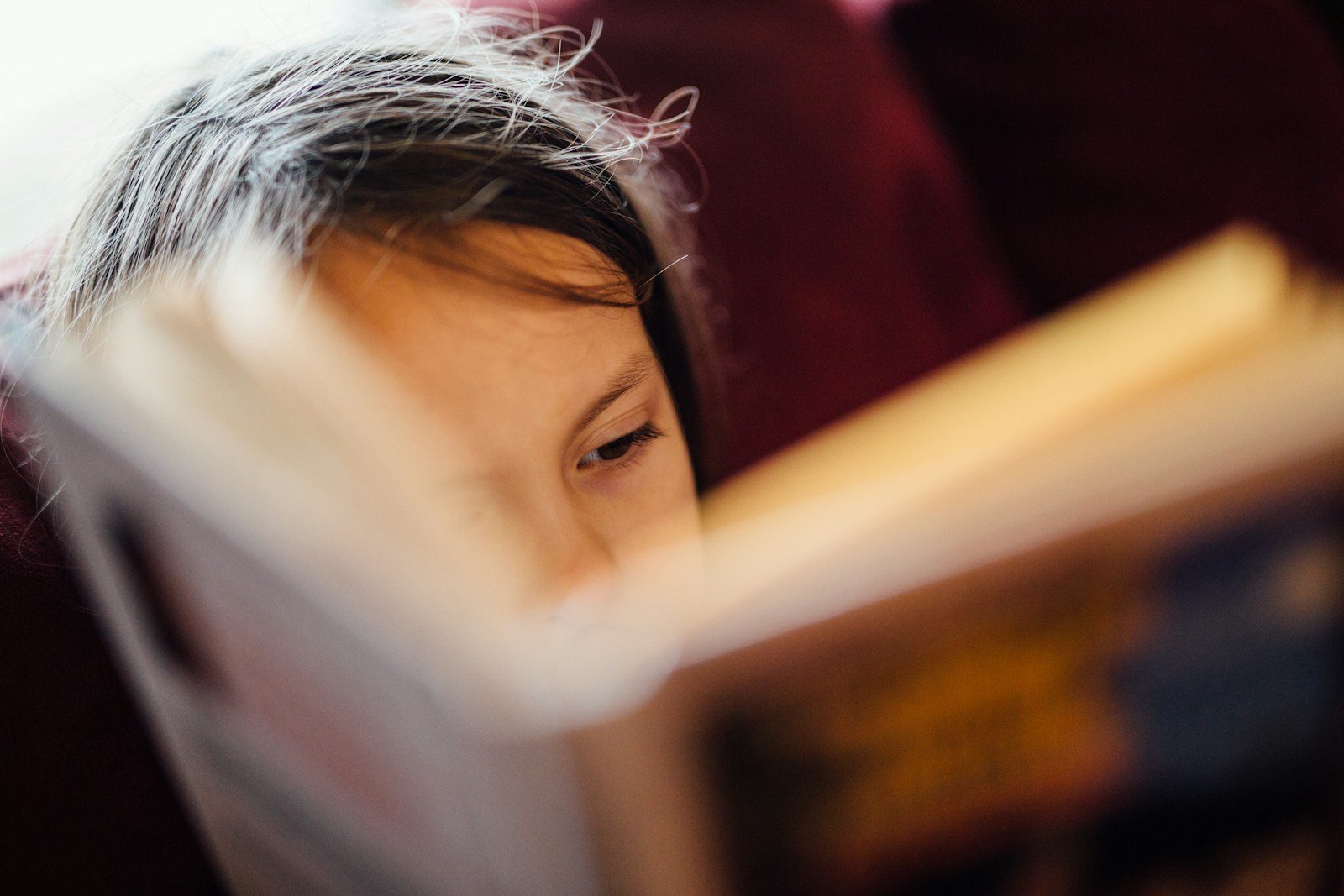Books on Mental Health for Parents and Children to Read Together: Summer 2024
(This article is part of our series, Family Mental Health 2024, which covers key mental health resources for families in the U.S. and Canada. The series includes where to learn about common issues, such as anxiety, and information about local organizations; counselling sources; and videos, courses, and podcasts. See our Spring 2025 update for six more book suggestions.)
How can children learn about protecting their mental health, especially before becoming teenagers?
One way is for parents and children to read and discuss age-appropriate books that address these issues – and to do so well before the teen years, since an estimated 13 to 20 percent* of mental health problems begin by the early adolescent years of 11 to 14.
Menderist reached out to professionals who specialize in children’s books and learned there are many informative titles about mental health, written for pre- and early teens. Contributors for this article include Abbie Werner James, a Licensed Behavior Specialist who works in youth services at a public library and who reads and writes fiction for middle grade children. Another contributor is Helen Kubiw, who runs the comprehensive blog, CanLit for LittleCanadians, and is a retired teacher-librarian.
Contemporary Topics
We asked these specialists to suggest a few fiction books, intended primarily for 8- to 12-year-olds, that are suitable for both children and their parents/caregivers to read and discuss. Another request was for titles published in the past couple of years, which have received largely positive reviews. Each contributor prioritized books that focus on the common issues today concerning pre-adolescent children: social media; body image; anxiety; and friendship and communication.
Note:
The list below represents some of the many mental health-themed books available. Library professionals selected these 14 titles as suitable for parents/caregivers and children aged 8+ to share and discuss. Each pick is accompanied by a brief description.
The books chosen cover a variety of topics, settings, and events. To help increase the likelihood that a child will like the book chosen, we recommend leaving the final choice up to them (even if the topic might not normally be the parent’s first pick).
More books and in-depth reviews are included at long-respected review sites such as:
– Kirkus Reviews and Quill and Quire;
– and at the sites mentioned in the article: CommonSense Media; CanLit for LittleCanadians; and Goodreads.
Main Topic – Image & Social Media Pressure
Starfish (for ages 9-13) is a novel in verse by Lisa Fipps. The main character is Ellie, who’s 12 and dealing with issues related to image and body size. Among other plot details, the story refers to therapy sessions that help Ellie build self-acceptance.
Recommended by A.W. James
Picture Day (for ages 8-12) is a graphic novel by Sarah Sax – The main character is seventh-grader Viv, who becomes so preoccupied with her image and social media presence that she ignores her real-life friends. By the end of the book, she has learned how to prioritize.
Recommended by A.W. James
Finally Heard (for ages 8-12) is a fiction novel by Kelly Yang -The book focuses heavily on pressures related to social media usage. In its Parents’ Guide to the book, CommonSense Media describes the story this way: “In Finally Heard, young Lina and her sister make some simple videos to post online to help their Chinese immigrant mom promote her struggling new business. When Lina starts to see the events she wasn’t invited to, the houses fancier than her own, and especially the comments in her classmates’ group chat, she starts spinning. Soon she thinks the only way to solve the problem is to do the same things right back. But things get ugly, and Lina is faced with some tough decisions about what to say out loud in her very real school life instead of an online world she can hide in.” (A sequel to ‘Finally Seen’)
Recommended by A.W. James
“Young Lina and her sister make some simple videos to post online to help their Chinese immigrant mom promote her struggling new business.” – review, Finally Heard

Confessions of a Class Clown (for ages 9-13) is a fiction novel by Arianne Costner – This book features a lot of social media usage that, at first, seems to be condoned: but then the story explores some of the negative consequences on mental health and relationships that social media can bring. A character deletes her social media account at the end, providing a role model for someone deciding to eliminate that pressure from life. The book is so humorous throughout that readers will not feel they’re being taught a lesson.
Recommended by A.W. James
The Kate in Between (for ages 8-12) is a fiction novel by Claire Swinarski – Kate is 12 years old and struggling with her decisions around cliques, popularity, and a video of herself that went viral. The book considers how to handle bullying and friction between old and new friendships.
Recommended by A.W. James
Main Topic – Anxiety
Dear Student (for ages 8-12) is a fiction novel by Elly Swartz – The book’s main character is Autumn, a sixth grader selected to be the anonymous ‘expert’ who answers an advice column in her school newspaper. Along the way, Autumn works through social anxiety and conflicts between friends.
Recommended by A.W. James
Give and Take (for ages 8-11) is a fiction novel by Elly Swartz – Maggie, 12, is the main character who works through many challenges, including anxiety and hoarding behaviors. The review site, Kirkus Reviews, concludes: “A potentially useful resource for kids struggling with loss, change, and letting go.”
Recommended by A.W. James
Everywhere Blue (for ages 10-12) is a novel in verse by Joanne Rossmassler Fritz – The book’s main character is 12 year-old Maddie, who experiences anxiety and compulsive behaviors. The review site, Goodreads, praises the “gorgeous narrative voice” of the story and characterizes the book as a “powerful debut novel in verse (that) addresses the climate crisis, intergenerational discourse, and mental illness in an accessible, hopeful way.”
Recommended by A.W. James
Valley of the Rats (for ages 9-12) is a fantasy/mystery written by Mahtab Narsimhan – Kirkus Reviews begins its review of this fantasy/mystery as follows:

“Twelve-year-old germophobe Krish Roy has never liked the outdoors: it’s too dirty and unpredictable. But trying to connect with his nature photographer father, Krish agrees to leave Delhi and go with his dad to a wilderness adventure camp in the Ladakh Range, where they embark on a hike through the forest and mountains. Unfortunately for Krish, he was right to be worried.”
Recommended by H. Kubiw
Thanks a Lot, Universe (for ages 10-14) is a fiction novel written by Chad Lucas – This Kirkus-starred book is reviewed at Helen Kubiw’s website canlitforlittlecanadians, and is described this way:
“Thanks a Lot, Universe is the story of two boys, both coming to terms with new realities. While they are as different as they appear on the cover, the two are both looking for and finding their true selves, with or without the help of the universe.
“Told in the alternating voices of thirteen-year-olds Brian Day and Ezra Komizarek, Thanks a Lot, Universe parallels the stories of the two Halifax boys as they become true friends, and maybe more, though the plot is very much driven by the shy and socially anxious Brian.”
Recommended by H. Kubiw
Like a Duck (for ages 8-12) is a work of fiction by Deborah Kerbel -The review site Quill and Quire describes the book’s plot this way:
“Waterfowl, day-camp antics, and family secrets collide during a summer of self-discovery in Like a Duck ….While Like a Duck might induce a little stress when Webster (the duck) goes missing for sensitive, animal-loving readers, it’s an excellent book to share with an anxious kid, who might see themselves reflected in Sarah. Books that casually deal with mental-health issues can provide kids with entry points to talk about and process their own struggles.”
Recommended by H. Kubiw
Living with Viola (for ages 8-12) is a graphic novel by Rosena Fung. Quill and Quire‘s starred review includes this description of the novel’s plot: “Protagonist Livy, short for Olivia, starts at a new school and making friends is going … fine? As she gets closer to a small group of girls, she worries that she’ll never really fit in. Her lunches are “smelly” and “weird,” after all…. To make matters worse, she’s constantly told that being different isn’t okay. Her anxiety, in the form of a periwinkle-coloured ghostly version of herself (named Viola), appears to feed her self-doubt at every turn”….
Recommended by H. Kubiw
*Sources
Other Recommendations
Family Mental Health
Lost Kites and Other Treasures (for ages 8 – 12) is a fiction novel by Cathy Carr – Menderist publisher and parent Anne Elliott enjoyed this novel about Franny, an amusing and thoughtful 12-year-old. Franny’s in 6th grade, lives with her grandmother, and loves making art and hanging out with friends. When her grandmother has a fall and hurts her leg, major changes are required, starting with a temporary relocation to a more accessible house.
Franny navigates the new situation, only to discover even more challenges ahead. A friendship hits a rocky patch; Franny’s uncle comes to live with her and her grandmother; and issues arise related to Franny’s mother, who the book describes as “charismatic, complex, (and) troubled.” Lost Kites and Other Treasures is a hopeful story whose main character gains resilience as she works through challenges, and who develops a deeper sense of compassion and community along the way.
Kirkus Reviews describes Lost Kites and Other Treasures as “unusual and gratifying.”
Recommended by A. Elliott
A Book for Parents / Caregivers
The above titles were chosen as mental health fiction books that parents/caregivers and children might find helpful to read and discuss. However, for adults who want to learn more about the relationship between mental health and teen social media usage, Abbie Werner James recommends another book:
Generations: The Real Differences Between Gen Z, Millennials, Gen X, Boomers, and Silents —and What They Mean for America’s Future, by Jean M. Twenge – Parents and other adults seeking to understand the challenges of the younger generation, particularly related to social media, will likely find parts of the Generation Z section within this non-fiction book helpful, notes Abbie Werner James. She observes that the book is suitable for parents and caregivers and says that it includes information “about the correlations between mental health concerns and teen social media usage (that) may be eye-opening. Sometimes data and graphs can be helpful if parents are planning to have a conversation with their kids about smart phone usage—to show them the science behind why they are concerned.”








